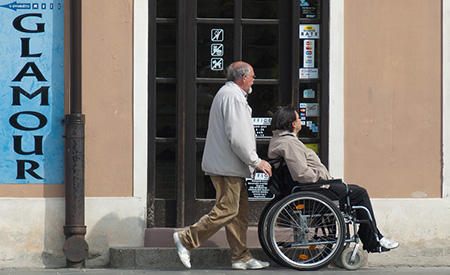Public opinion about the rights and wrongs of sex work is ever shifting. However, there is a cohort of individuals who are consistent in their wish to see the UK follow the ‘Nordic Model’ of legislation.
The Nordic Model, introduced in Sweden in 1999, saw the traditional onus of criminal liability in prostitution flipped, meaning that paying for sex would become a crime, but being paid for sex would not.
Dr Tuppy Owens is a sex therapist, and co-founder of the Outsiders Club. The organisation is a social, peer support and dating club, run by and for social and physically disabled people, supporting the rights of disabled people and their sexuality.
Sex workers help to teach disabled people how to enjoy their bodies and please a partner
In the UK, prostitution itself is legal. However, soliciting in public, kerb crawling, pimping, and owning or managing a brothel are all considered crimes.
“People who oppose the purchasing of sex are ignorant,” Owens said. “They don’t understand how precious the opportunity for disabled people to have sex is. Sex workers help to prevent depression and they teach disabled people how to enjoy their bodies and please a partner.”
Owens meets with sex workers, readily prepared to pass on their details so that club members who wish to engage the services of a sex worker can be referred to appropriate professionals who have experience in meeting the sexual needs of disabled clients. She also vets prospective members of the club, knowing that many of the club go on to make friends and long-term relationships with her blessings.






